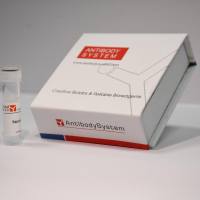Analysis of Molecular Chaperone Activities Using In Vitro and In Vivo Approaches
互联网
互联网
相关产品推荐

InVivoMAb 抗小鼠 CD274/PD-L1/B7-H1 Antibody (10F.9G2),InVivo体内功能抗体(In Vivo)
¥2700

Recombinant-Hordeum-vulgare-High-molecular-mass-early-light-inducible-protein-HV58-chloroplasticHigh molecular mass early light-inducible protein HV58, chloroplastic; ELIP
¥10556

Recombinant-Ashbya-gossypii-Chitin-synthase-export-chaperoneCHS7Chitin synthase export chaperone
¥11788

重组人 p38 delta / MAPK13 蛋白 (Activated in vitro, GST标签)
¥3220
![四[N-邻苯二甲酰-(S)-叔亮氨酸基]二铑双(乙酸乙酯)加合物;154090-43-4;Elemental analysis(Nitrogen) 3.30 to 4.50 %;V66234-25mg](https://img1.dxycdn.com/p/s14/2025/1029/004/8672158669127143891.jpg!wh200)
四[N-邻苯二甲酰-(S)-叔亮氨酸基]二铑双(乙酸乙酯)加合物;154090-43-4;Elemental analysis(Nitrogen) 3.30 to 4.50 %;V66234-25mg
¥399
相关问答

